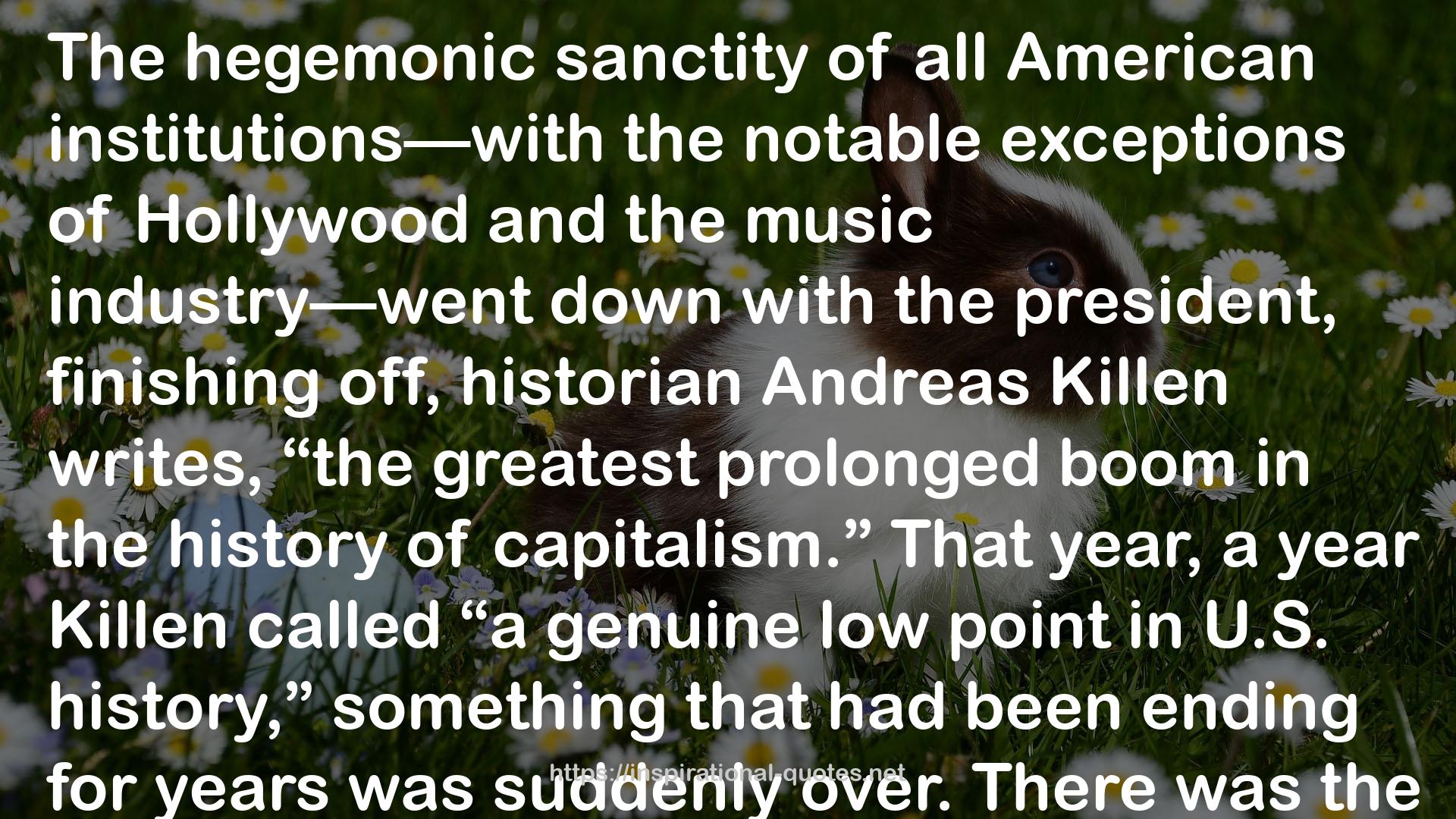" The hegemonic sanctity of all American institutions—with the notable exceptions of Hollywood and the music industry—went down with the president, finishing off, historian Andreas Killen writes, “the greatest prolonged boom in the history of capitalism.” That year, a year Killen called “a genuine low point in U.S. history,” something that had been ending for years was suddenly over. There was the 1973 oil embargo and subsequent depression; the ’73 failure of the Vietnam War, the longest war to date in U.S. history, with more than thirteen hundred MIAs; the January ’73 report in Time that airplane hijackings had reached epidemic proportions, and the disturbing number of passengers aboard those flights who, incredibly, found themselves siding with their captors. So disenchanted were they, Tom Wolfe wrote, with “the endless exfoliations of American power,” that he observed: “It is astonishing how often hostages come away from their ordeal describing the Hostage Taker as ‘nice,’ ‘considerate,’ even ‘likeable.’” (The term “Stockholm syndrome” was coined in 1973, the year the bad guys won. The year we realized the game was rigged and it was better to be hostage-taker than a hostage.) "
― Sam Wasson , The Big Goodbye: Chinatown and the Last Years of Hollywood
